You may also be interested in

The Internet and diplomats of the 20th century
The Internet and diplomats of the twenty century: how new information technologies affect the ordinary work of diplomats.
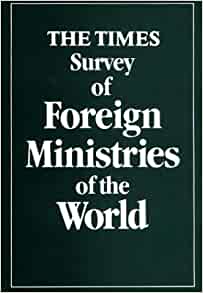
The Times Survey of Foreign Ministries of the World
The Times Survey of Foreign Ministries of the World provides valuable insights and information on foreign ministries worldwide.
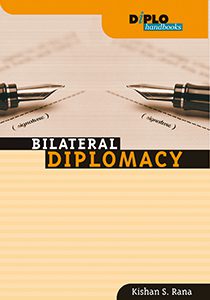
Bilateral Diplomacy
Bilateral Diplomacy is the first of the DiploHandbooks, a new series on practical diplomacy. The book breaks new ground in the role ascribed to bilateral diplomacy, and its importance in international affairs today. It also covers the de facto “empowerment” of the embassy that flows from its new responsibility for relationship management.
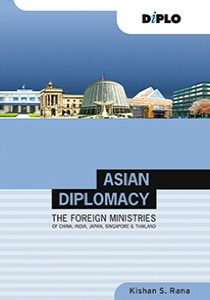
Asian Diplomacy: The Foreign Ministries of China, India, Japan, Singapore and Thailand
Based on eight years of research and interviews with over 160 professional diplomats and others, this book offers a range of information on the structures, operation and the working style of the foreign ministries of five key countries in Asia: China, India, Japan, Singapore and Thailand. The rise of Asia adds salience to this book, since it has become more important than ever before to understand the dynamics of the foreign policy process in these countries.

Public Diplomacy Between Home and Abroad: Norway and Canada
The text discusses public diplomacy efforts between Norway and Canada. Both countries recognize the importance of cultural exchange, education, and communication in fostering positive international relations. Various initiatives, such as academic partnerships and cultural events, are highlighted as examples of how these nations engage in public diplomacy to strengthen their ties and promote mutual understanding.

Foreign ministries and the management of the past
In his paper, Keith Hamilton looks at Foreign Ministries’ treatment of historical diplomacy, and specifically, the publication of diplomatic documents. Through his historical analyses, the author examines the various aims of these documents, such as, to shed light on past developments and help in current and future negotiations; to influence parliamentarians and a wider public; and to further international relations’ studies.
Will Shashi Tharoor’s Recommendations Reform the MEA for the Better?
The text is about Shashi Tharoor's proposed reforms for India's Ministry of External Affairs (MEA) and the impact it could have.

Report of the Review Committee on Overseas Representation
The Review Committee on Overseas Representation's report focuses on enhancing global presence and efficiency, recommending streamlining of processes, increased coordination between offices, and leveraging technology for better communication.
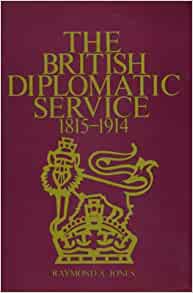
The British Diplomatic Service 1815-1914
The British Diplomatic Service from 1815 to 1914 showcases the evolution of a prestigious institution that adapted to the changing political landscape of the 19th century. This period saw the service expand its reach globally, employing both traditional aristocratic diplomats and a growing number of professionals. The diplomatic corps played a vital role in maintaining British interests abroad, while facing challenges such as increased international competition and demands for specialized knowledge. The period also witnessed the professionalization of diplomatic practices and the development o...

Finance, Trade and Politics in British Foreign Policy, 1815-1914
The text explores the interplay of finance, trade, and politics in British foreign policy from 1815 to 1914. It discusses how economic factors influenced decision-making and shaped diplomatic relations during this period.
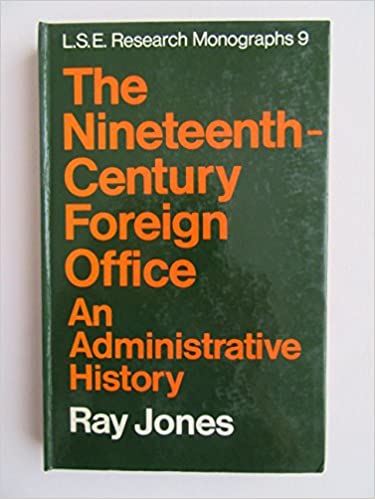
The Nineteenth Century Foreign Office
The Nineteenth Century Foreign Office discusses the evolution of foreign diplomacy during the 1800s, emphasizing the growth of Britain's diplomatic service, the influence of key diplomats and foreign secretaries, and the changing dynamics of international relations during this time period. It explores the impact of major events such as the Congress of Vienna, the Crimean War, and the development of the British Empire on the role and function of the Foreign Office. The article highlights the significant role played by diplomats and foreign secretaries in shaping British foreign policy and navig...

Foreign Ministries: Managing Diplomatic Networks and Optimizing Value
This is a collection of papers presented at the 2006 Conference on Foreign Ministries hosted by DiploFoundation in May 2006, in Geneva. The overarching theme is the adaptation and reform that these ministries have undertaken, in the shape of country experiences and the transformation implemented in specific areas such as the application of information technology for outreach to domestic publics, adaptation in consular services and outsourcing options. Some of the challenging issues addressed cover relations between civil servants and politicians, the role of sub-state entities in diplomacy, an...

Diplomatic culture and its domestic context
Is there a specific, distinctive diplomatic culture? Given the fact that the conduct of diplomacy is regulated by international law and by custom, and since the structures through which states conduct their external relations, both bilateral and multilateral, are standardized, it is fair to say that both the institutions and the process form a pattern of their own, unique to this profession. The professional diplomatist actors on the international stage, and their institutions, display certain shared characteristics.
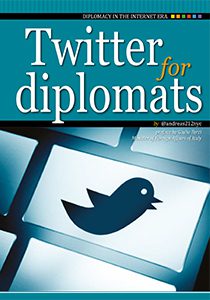
Twitter for Diplomats
Twitter for Diplomats is not a manual, or a list of what to do or not to do. It is rather a collection of information, anecdotes, and experiences. It recounts a few episodes involving foreign ministers and ambassadors, as well as their ways of interacting with the tool and exploring its great potential. It wants to inspire ambassadors and diplomats to open and nurture their accounts – and it wants to inspire all of us to use Twitter to also listen and open our minds.

The role of the legal adviser in modern diplomatic services
The role of the legal adviser in modern diplomatic services. This paper discusses the role of the legal adviser in modern diplomacy services and the efforts that must go into preserving all possibilities, meagre as they may be, to raise his voice and keep making efforts which eventually could lead in the right direction.

Knowledge management in the Ministry of Foreign Affairs of Malta
In this paper, Maltese diplomat Gaetan Naudi explains how the Maltese MFA embraced the changes introduced by the informatics era. He looks at such changes from a business management perspective, to show how ICTs were introduced to such a fairly large organisation, the concerns raised by the changes, and the progress on computerised knowledge management. He concludes that despite the positive changes introduced thanks to ICTs, this would not have been possible without human involvement.
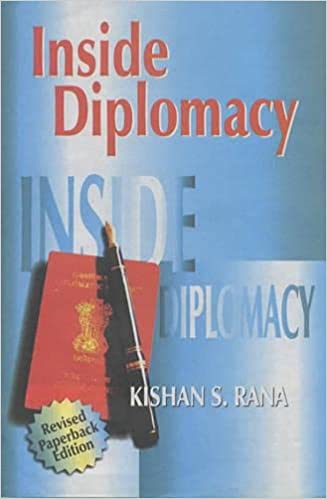
Inside Diplomacy
This is a book on diplomacy in general and the Indian Foreign Service (IFS) in particular. It is also a gem, and a large gem. It breathes life, wisdom, and good humour, and is full of rich detail. I found it thoroughly absorbing. Students of diplomacy at all stages of their careers will find it immensely useful, while those in a position to influence the future shape of the IFS will discover a whole raft of constructive suggestions for reform fearlessly advanced.

Wilton Park: sui generis knowledge organisation
In his paper, Colin Jennings describes the way Wilton Park – an executive agency of the British FCO – operates. He highlights some of the key reasons for its success, and identifies some specific outcomes of the conferences organised by Wilton Park. The author also offers a few reflection on knowledge management based on his many years of experience.
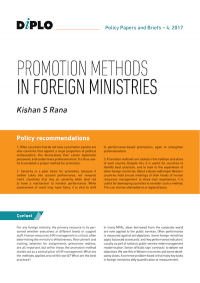
Promotion Methods in Foreign Ministries (Briefing Paper #4)
Ambassador Rana looks at promotion methods in foreign ministries around the world.

Singapore’s Diplomacy: Vulnerability into Strength
Singapore is a practitioner of focused, innovative diplomacy, constantly in search of the political space for itself that would overcome its sense of vulnerability resulting from its geopolitical location.
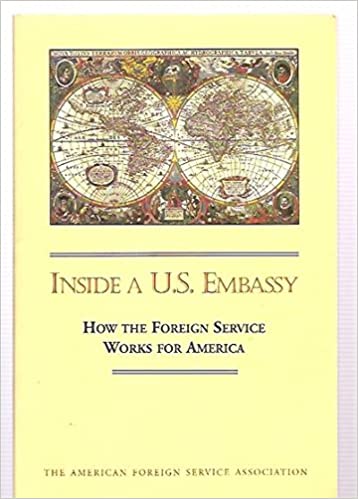
Inside the U.S. Embassy: How the Foreign Service Works for America
The U.S. Embassy and Foreign Service play essential roles in representing America's interests abroad and fostering diplomacy. The Foreign Service officers work diligently to promote American values, protect U.S. citizens, and advance global partnerships. Through collaboration with local governments and international organizations, they address complex challenges and work towards peaceful resolutions. The embassy serves as a hub for diplomatic efforts, supporting American citizens, businesses, and promoting cultural exchange. The Foreign Service's commitment to diplomacy, security, and humanita...
Foreign Ministries in Developing Countries and Emerging Markets
The text discusses the importance of foreign ministries in developing countries and emerging markets. It highlights the key role these ministries play in promoting economic development, attracting foreign investment, and fostering international relations. Additionally, it emphasizes the significance of effective diplomacy and strategic communication for these nations to navigate global challenges and opportunities successfully.

The New Public Diplomacy: Soft Power in International Relations
"The New Public Diplomacy: Soft Power in International Relations" is a thought-provoking and insightful book that delves into the realm of public diplomacy and its significance in the context of modern international relations. Authored by Jan Melissen, a renowned scholar in the field, this book offers a comprehensive analysis of the evolving nature of diplomacy and the growing importance of soft power.
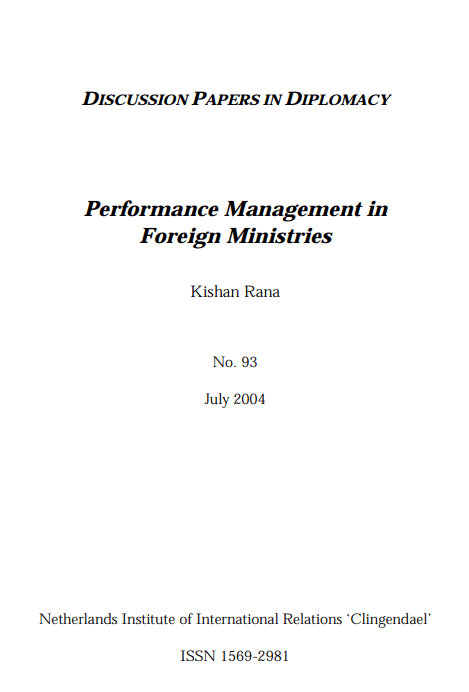
Performance Management in Foreign Ministries: Corporate Techniques in the Diplomatic Service
The text discusses the implementation of corporate performance management techniques within foreign ministries to improve efficiency and effectiveness in diplomatic services.

Reflections on multistakeholder diplomacy
Through analysis of the procedural and institutional arrangements in the functioning of international bodies, Valentin Katrandjiev, seeks to measure the extent to which diplomats accept nonofficial networks and entities as equal partners in the diplomatic negotiation process. Katrandjiev analyses the trend that on the domestic front, societies demand greater public accountability of governments in the process of national foreign policy making. He attempts to do so through the organisational units in MFAs responsible for relationships with domestic stakeholders.

The Permanent Under-Secretary of State: A brief history of the office and its holders
As the title of this booklet indicates, it is only a brief history of this increasingly influential office in the British Foreign & Commonwealth Office. Nevertheless, as one would expect from its provenance, it is completely authoritative, fluently written, draws on previously under-exploited archives, and includes many nineteenth century photographs never previously published.

True Brits: Inside the Foreign Office
True Brits: Inside the Foreign Office" offers an in-depth look into the workings of the British Foreign Office, shedding light on the complexities of international relations and diplomacy.

Knowledge management and diplomatic training – new approaches for training institutions
Dietrich Kappeler analyses the new approaches for training institutions in knowledge management and diplomatic training, departing from the premise that a distinction is important between personal characteristics and qualities of the diplomat on one hand, and the knowledge and skills he needs to do his job on the other.
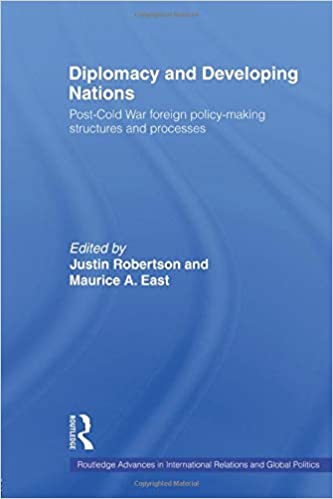
Diplomacy and Developing Nations: Post-Cold War foreign policy-making structures and processes
The text discusses how post-Cold War foreign policy-making structures and processes impact diplomacy with developing nations.
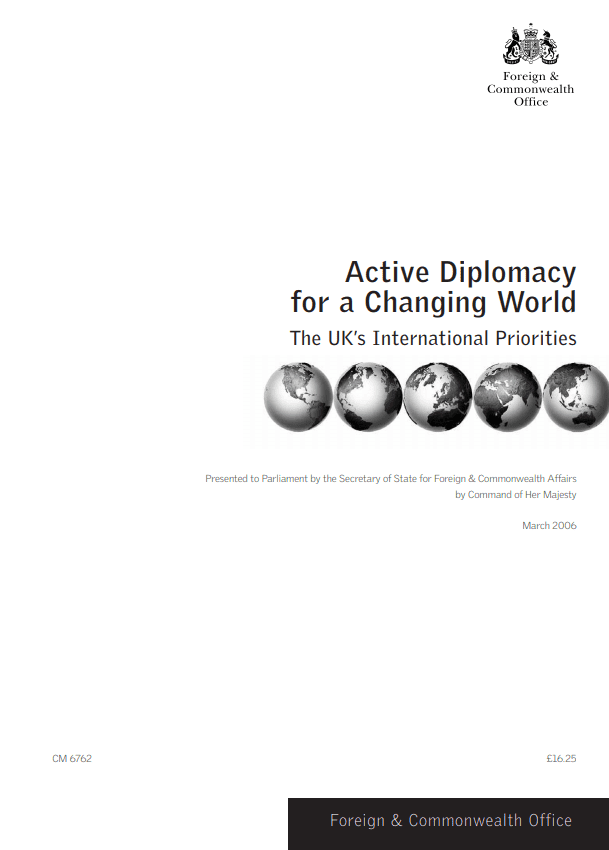
Active Diplomacy for a Changing World: The UK’s International Priorities
The UK's international priorities focus on active diplomacy in a changing world, emphasizing the importance of global engagement and cooperation to address challenges effectively.

I’ll be with you in a Minute Mr. Ambassador: The Education of a canadian Diplomat in Washington
The message shares insights from the book "I'll be with you in a Minute Mr. Ambassador: The Education of a Canadian Diplomat in Washington.
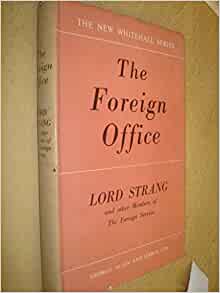
The Foreign Office
This book contains a comprehensive description of the British Foreign Office and the Foreign Service since the important Eden reforms of 1943.

Room For Diplomacy: Britain’s Diplomatic Buildings Overseas 1800-2000
Mark Bertram joined the Ministry of Public Buildings and Works after reading architecture at Cambridge and remained in the civil service as architect, project manager, administrator, estate manager and – in his own words – ‘quasi diplomat’ for the next thirty years. He was the ministry’s regional architect in Hong Kong in the 1970s, moved to the Foreign and Commonwealth Office when it secured control of its own buildings abroad (the ‘diplomatic estate’) in 1983, and was soon head of the estate department. On surrendering that role in 1997, he became a professional adviser to the ...

Connectivity and networks rule: Virtuality, public diplomacy and the foreign ministry
The text discusses the impact of connectivity and networks on public diplomacy and foreign ministries, emphasizing the importance of virtual communication in today's world.
A Digital DFAT: Joining the 21st Century
The Department of Foreign Affairs and Trade (DFAT) needs to keep pace with technological advancements that could increase efficiency, improve internal and external communication, and facilitate information exchange and gathering. Without e-diplomacy DFAT will be cut off from important audiences and find it increasingly hard to communicate its messages and coordinate Australian foreign policy across government.

Foreign Ministries in the European Union
Foreign Ministries in the European Union collaborate on a range of global issues, focusing on effective diplomacy, promoting human rights, and fostering peace and security. Regular meetings and coordinated efforts help countries in the EU amplify their impact on the international stage. By working together, they aim to address challenges such as climate change, terrorism, and conflicts around the world. These foreign ministries play a crucial role in shaping EU policies and strategies while representing the collective interests of member states.
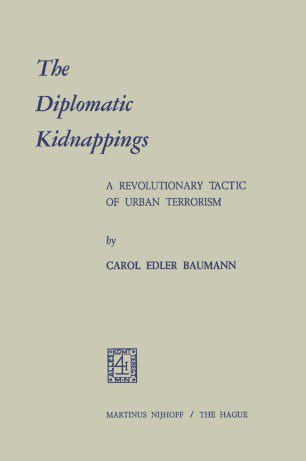
The Diplomatic Kidnappings: A Revolutionary Tactic of Urban Terrorism
The article discusses how diplomatic kidnappings have become a tactic of urban terrorism within revolutions, targeting diplomats to exert pressure on governments. Diplomats are seen as valuable assets by their home countries, making their abduction a powerful tool to achieve political objectives.

International Diplomacy Volume I: Diplomatic Institutions
The message provides information related to international diplomacy found in "International Diplomacy Volume I: Diplomatic Institutions.

Foreign Ministries and the Information Revolution: Going Virtual?
The ongoing information revolution is perceived as a profound organizational challenge for foreign ministries. Yet there is only scant empirical evidence on the nature of the change dynamics. Anchored in new institutionalist approaches in political science, this book reconceptualizes diplomacy as an institution of the modern state order and identifies its key organizing principles maintained by the global group of foreign ministries. With this conceptualization as a point of departure, the book provides a comparative analysis of information technology effects in the foreign ministries of Canad...

Foreign Ministries: Change and adaptation
The message talks about how foreign ministries need to adapt and change to meet the demands and challenges of the modern world.

Visa Denial Diplomacy
The text discusses how diplomats can use visa denials as a diplomatic tool to express dissatisfaction or send a message to another country. It highlights that while visa denials can strain relations, they can also be a strategic way to convey disapproval or communicate diplomatic signals. Diplomats may utilize this tactic to convey a variety of messages to other nations, influencing their behavior or actions through the denial of visas.
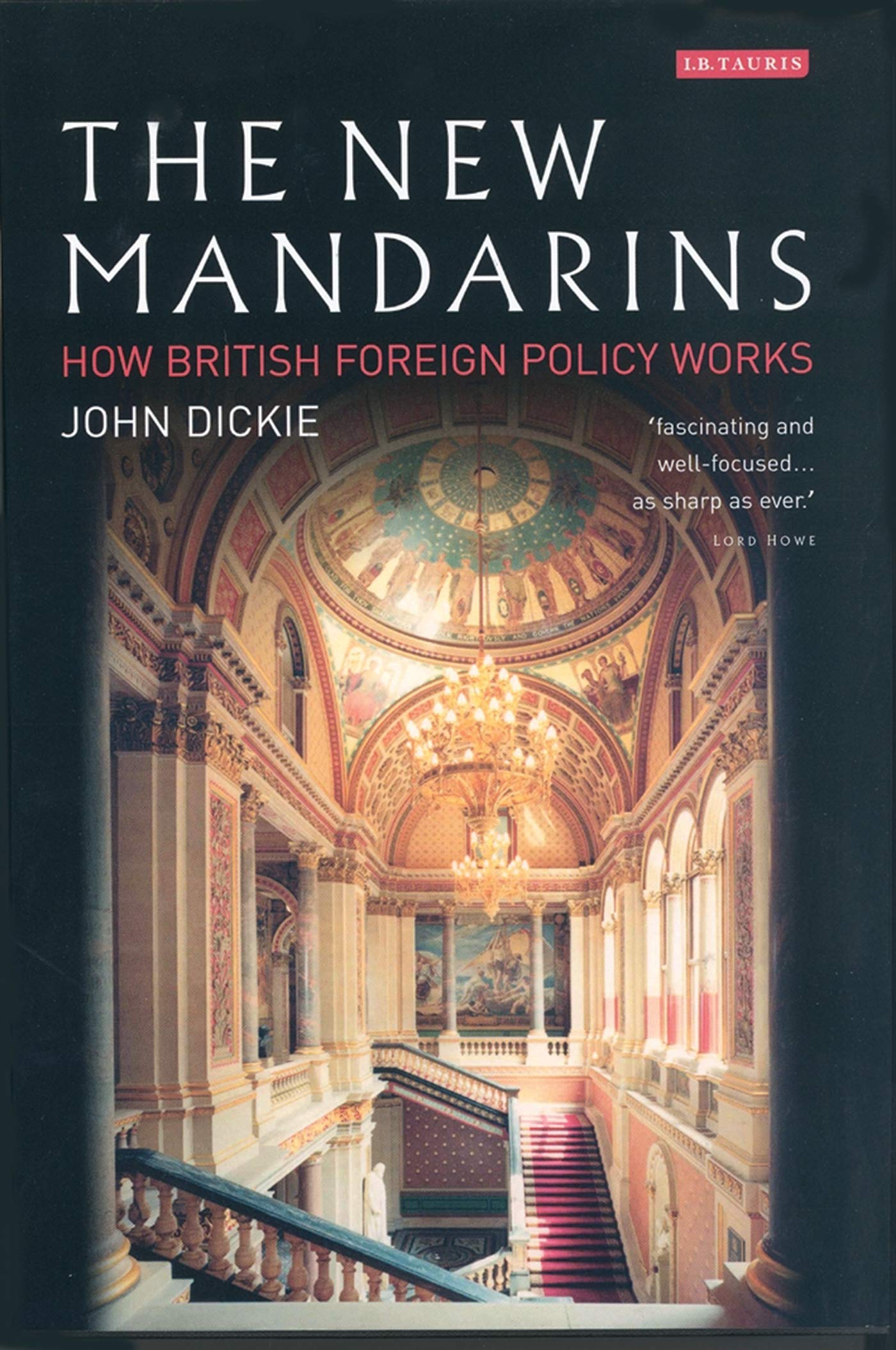
The New Mandarins: How British foreign policy works
The message delves into how British foreign policy operates, examining the role of the "new mandarins" in shaping decisions and strategies.
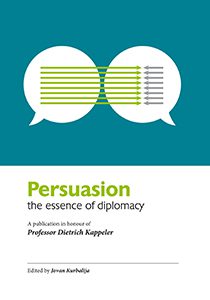
Persuasion, the Essence of Diplomacy
This journey through persuasion in diplomacy was initiated by Professor Kappeler’s long experience in both practicing diplomacy and in training diplomats.
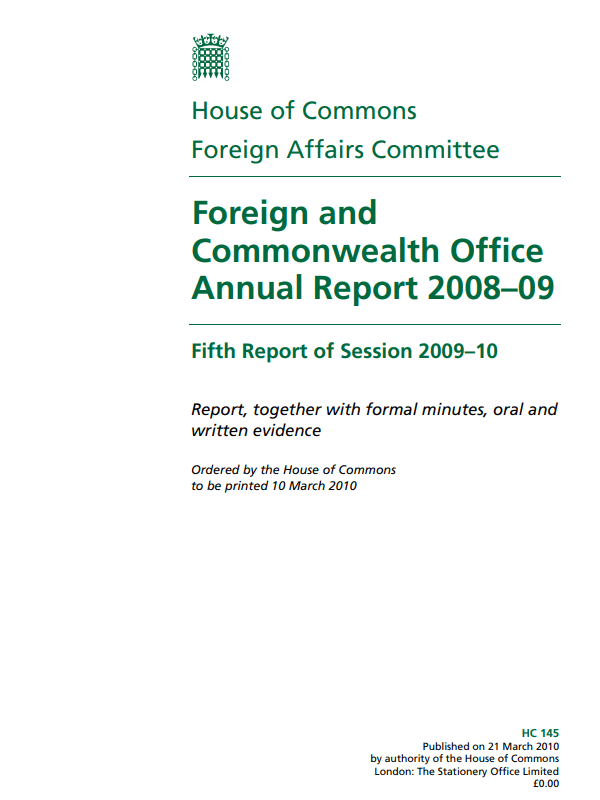
Consular Services Annual Report 2008/09
The Consular Services Annual Report 2008/09 showcases the work and assistance provided to citizens in need during the specified period.
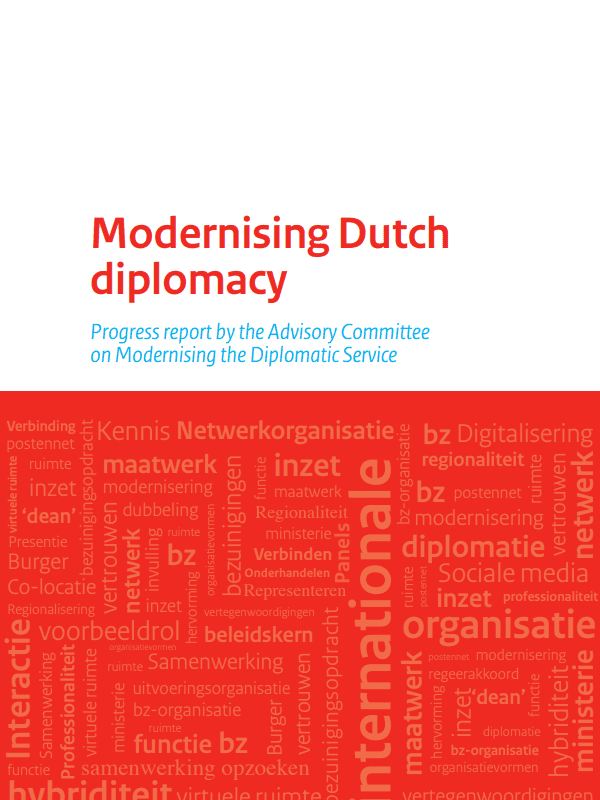
Modernising Dutch Diplomacy
The Dutch government is making investments in the modernization of its diplomatic services to enhance its efficiency, effectiveness, and digital capabilities. This upgrade aims to position the Netherlands as a leader in global diplomacy by adapting to the changing international landscape and embracing innovation.
The latest from Diplo and GIP
Tailor your subscription to your interests, from updates on the dynamic world of digital diplomacy to the latest trends in AI.
Subscribe to more Diplo and Geneva Internet Platform newsletters!
Diplo: Effective and inclusive diplomacy
Diplo is a non-profit foundation established by the governments of Malta and Switzerland. Diplo works to increase the role of small and developing states, and to improve global governance and international policy development.


